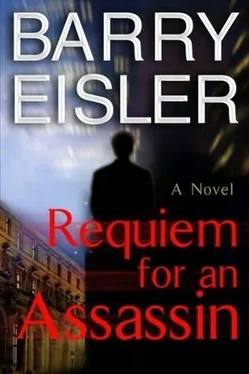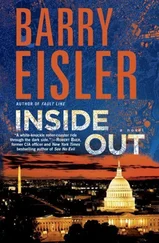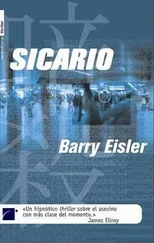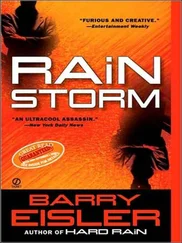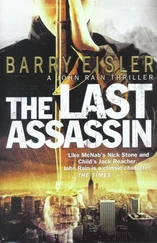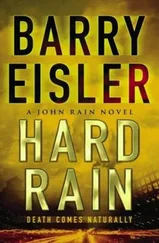I got out of the cab in front of the Rex and declined a bellboy’s offer to help me with my bag. I wasn’t going to stay here, but I remembered the hotel from leave in Saigon and thought it would be a good starting point from which to refamiliarize myself with the city. I was glad it was still here, the silly crown over the marquee and all. Not just because it was inherently comforting to know that my memories weren’t only of relics, but also because familiar terrain would save me time and help keep me safe.
I looked across Le Loi Street and smiled. The oddly named Saigon Tax shopping center was still there, looking much as it did in my memory, the main difference being the replacement of a Sony neon sign by one advertising Motorola instead. The French-designed City Hall to the Rex’s right also remained, its cream-colored balustraded façade illuminated grandly in the day’s fading light.
I went into the hotel. The lobby had gotten a face-lift, but in its déclassé essentials it remained unchanged. I smiled in quiet amazement that a place could survive war, and communism, and the passing of decades so unperturbed. I moved in from the entryway, feeling like I was stepping back in time. The young man I was had come here with a prostitute, more than once. I was astonished at the clarity with which I could remember faces, and moments, even the names they had called themselves ten thousand nights ago.
I took an interior staircase to the fifth floor, and then, ignoring the signs warning that only registered guests were permitted beyond, I explored the mazelike interior of the hotel. Beyond the public areas, it was all as it had been: hallways with open balconies at their ends; faded wood paneling and stalwart tiled floors; empty couches facing upholstered chairs in hidden antechambers, coffee tables and ashtrays absurdly at the ready, set out in melancholy hopes of a party that had moved on decades before. Even the fat geckos, feasting on insects attracted to the corridors’ stark fluorescent lighting, it was as though it had all been waiting for me.
I followed one of the staircases down to the third floor, then made my way to a balcony at the end of the corridor. I had a perfect view of City Hall and the plaza in front of it. Excellent.
There was only one problem: a single inset incandescent light in the ceiling directly above me. I took out a handkerchief and un-screwed it a few turns until it went out. I doubted anyone would notice and fix it before tomorrow. If they did, I would just unscrew it again.
I took the stairs back down and walked over to the statue of Ho Chi Minh on the plaza in front of City Hall. I looked up at the hotel. The balcony I had darkened was noticeable, but not egregiously so. There were plenty of other lightless patches in the hotel’s façade, and I doubted Hilger would zero in on this one. Even if he did, he’d have no way of knowing I was standing there, shrouded in darkness.
Saigon Tax was a little less familiar, primarily because it had gone upscale since I had last seen it. In addition to jewelry, watches, plasma televisions, and home theater systems, there was a section selling Panasonic massage chairs. Slowly but surely, Saigon was getting rich. But the layout was as I remembered: four floors, with an open atrium from the ground floor all the way up; three sets of staircases, two escalators, one elevator; entrances and exits on three sides. Perfect.
Long into the night, I wandered District 1, the city center, re-familiarizing myself, absorbing details. It wasn’t just the Rex: I was astonished at how little the city itself had changed. I’d been to Bangkok less than a year earlier and the place was barely recognizable as the city I had first visited during the war, but communism had retarded things here, and it was only recently that Saigon had begun to take off. Some of the street names had changed, yes. And there were a few new high-rises-a Citibank building, one for HSBC-but the low skyline was largely the same. I recognized some of the Rex’s contemporaries: the Caravelle, with a tall new wing; the Majestic, still perched above the Saigon River. The presidential palace, whose wrought-iron gates had come crashing down under the North’s tank treads when the South fell in 1975, had been preserved and renamed the Reunification Palace, and was now a tourist attraction. I was amazed at the almost palpable presence of the young man who had walked these streets and seen these sights. I no longer was that man, but his memories were now mine, his dark gift to me; they united us as surely as the progeny of a dissolved and loveless marriage.
I walked. The ubiquity of commerce, I noted, that too was unchanged: motorcyclists offering impromptu taxi rides; stores selling a few spare feet in a corner for someone to park a scooter; street vendors hawking secondhand watches and rebuilt engines and coconut milk in plastic cups. The raw capitalism, the economic dynamism, of the place was stunning. I wondered why anyone had ever feared that communism could take root in this culture. The North had swallowed Saigon like a diner ingesting a virus, and within twenty years the virus had so infected the host that Hanoi was calling for doi moi, politely described as “reforms,” more accurately understood simply as “capitalism.” Save these people from communism? Christ, it was Hanoi that needed saving now. We could have just sat back and enjoyed the show.
But that would have required patience, I supposed, and perspective, too, neither of which was ever likely to feature prominently in anyone’s list of the top ten American virtues. Well, at least I wouldn’t have to participate in the current sequel: America Uses Military to Remake the Middle East and End Tyranny in Our Time.
Sequel, my ass, I thought. It’s a fucking remake. And the end is going to be just the same.
I was pleased to find the Opera House I remembered, now known as the Municipal Theater. Likewise, the Notre Dame cathedral, a remnant, along with City Hall, of French rule. I liked that the locals hadn’t tried to eradicate the country’s colonial heritage. Their acceptance, even embrace of the past suggested a cultural maturity I found I admired.
I smiled. Maybe I was giving them too much credit. Maybe they were just too busy making money to care.
I found a store that sold knives, where for ten dollars I bought a nameless folder with a four-inch blade. I would have preferred something higher-quality, but I had to settle for what was available. I slapped the spine of the blade against my palm a few times, and was satisfied the lock was adequate. Certainly the edge was sharp enough, at least for the time being. Dox, who could be almost fetishistic about what he carried, probably would have sneered at it. But I tend to be a meat-and-potatoes guy about blades: insert pointy end in target. Repeat as necessary. It’s always worked for me before.
The thought of the burly sniper bore down on me. I didn’t want to think of him just now-there was nothing I could do for him, so the thinking was a distraction, a waste. But for a moment, the sound of that last scream echoed in my mind, and my worry broke through. I paused and concentrated on where I was, what I was planning, until the emotion had passed.
As the night grew late, fatigue crept closer. Darkness softened the contours of the city around me, and my emboldened memories emerged like insistent stars in a fading sky. Kids, ten thousand miles from home and fresh from the jungle, delirious with sudden freedom and the absence of fear, loosed upon the city and looking for booze, girls, any kind of trouble. Crazy Jake, in a bar on Dong Khoi, berserking on a navy guy who’d said something stupid to him, then denying everything to the MPs after the guy had been ambulanced off, persuading them, his shark’s smile and the insanity in his eyes letting them know you fuck with me you better be ready to die. Everyone laughing nervously after the MPs had acknowledged their mistake and shoved off, everyone but Crazy Jake himself, who’d been ready to die right then, who’d actually expected it, and maybe was disappointed that yet again it hadn’t happened, that the gods of war had plans for him far from the artifice of the city with its lights and laughter and otherworldly rules.
Читать дальше
